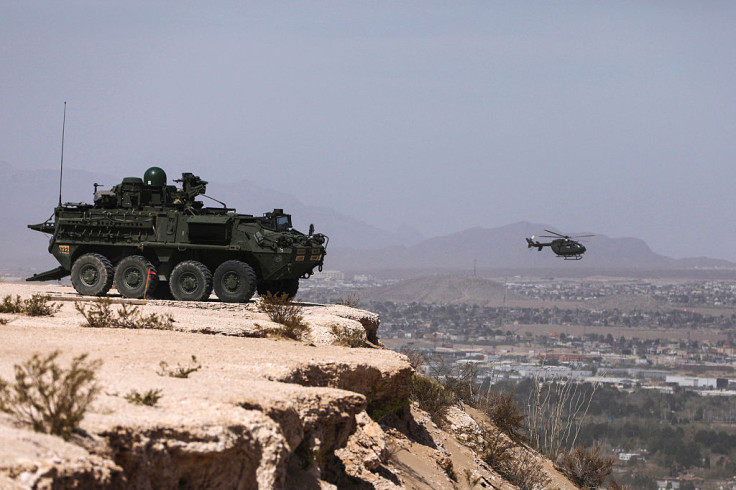
President Donald Trump's directive to the Pentagon to begin using military force against Latin American drug cartels—previously designated by his administration as foreign terrorist organizations—has drawn widespread criticism from experts, public officials and advocacy groups.
The order lays the groundwork for potential direct military operations at sea and on foreign soil. However, many organizations, including the Washington Office on Latin America (WOLA), a nonprofit that promotes human rights, democracy and justice in the region, argue that deploying the military to combat drug trafficking cartels would be a serious mistake.
In a statement, WOLA gave five reasons why Trump's proposed use of the military in Latin America would be counterproductive in building a good relationship with countries in the region.
The first issue raised in the Aug. 13 report is the lack of clarity around the actual goal of military intervention.
WOLA argues that even if the intent is to eliminate a specific cartel, doing so would have little long-term impact on violence or the drug trade. Criminal groups in the region are easily replaced, and removing one does little to address the broader structures that sustain organized crime. While the U.S. military could disrupt operations or take down high-profile targets, such actions rarely lead to lasting change.
"One cannot shoot and bomb organized crime out of existence, and trying to do so will be a bitter experience for the Trump administration," WOLA said. "If it follows through on plans to use the U.S. military to fight organized crime overseas, expect a lot of "Mission Accomplished" moments followed by embarrassing setbacks."
WOLA also argues that treating organized crime like a terrorist threat or insurgency is a fundamental mistake. Unlike political movements, criminal groups are motivated by profit, not ideology or control of the state. This makes them less predictable and harder to combat through military force alone.
The nonprofit highlights that deploying the U.S. military wouldn't achieve "anything that the drug war has not already done," arguing that despite taking down important drug lords such as Pablo Escobar, Joaquín "El Chapo" Guzmán and many others, new leaders and organizations continue emerging, as organized crime is sustained by corruption in the region.
"The forceful approach does not work. It will defeat specific kingpins and organized crime groups, but it will leave intact 'organized crime' because soldiers don't exist to fight webs of corruption and illicit finance."
WOLA also warns that launching military operations on foreign soil without consent could do lasting damage to bilateral and regional relationships. The group suggests that such an intervention could prompt countries like Mexico to withdraw from ongoing cooperative efforts with the United States to address organized crime and violence.
"The harm to relations and to other U.S. interests would be multiplied if the operation came with so-called collateral damage, like the loss of civilian life in that country. The cost to U.S. credibility would be hard to calculate," the group stated.
While WOLA agrees that organized crime poses a serious threat across Latin America, it argues that placing military force at the center of the U.S. response is the wrong approach. A lasting strategy, the organization says, must focus on strengthening institutions, governance, and civil society.
One of WOLA's key recommendations is to help dismantle the corrupt ties between criminal networks, local authorities, and the legal economy—connections that allow organized crime to operate with impunity.
"Breaking these corrupt links is vital," the group said. "Instead of drones and special forces raids, it is urgent to pour resources into prosecutors, investigators, financial analysts, whistleblower protections, trained and protected judges, civil society watchdogs, and a free press, both in the U.S. and abroad."
WOLA also emphasizes the need to bolster the region's security infrastructure. It argues that real progress depends on comprehensive public safety systems that prioritize citizen protection and accountability.
"Strategies fail when they leave out the judicial branch, civilian police, experts, and community leaders along with watchdogs and reformers in the legislature, civil society, and the press," the statement said.
In its closing statement, WOLA calls for a fundamental shift in U.S. drug policy. The group argues that the illegal status of drugs like cocaine, heroin, and fentanyl has inflated their value and empowered criminal groups while doing little to reduce harm or addiction.
"Ending prohibition won't eliminate organized crime entirely—there will still be illegal mining, human trafficking, extortion, and more," WOLA stated. "But it would make the fight easier and free up resources for the security institutions that actually protect communities and weaken criminal influence."
© 2025 Latin Times. All rights reserved. Do not reproduce without permission.






